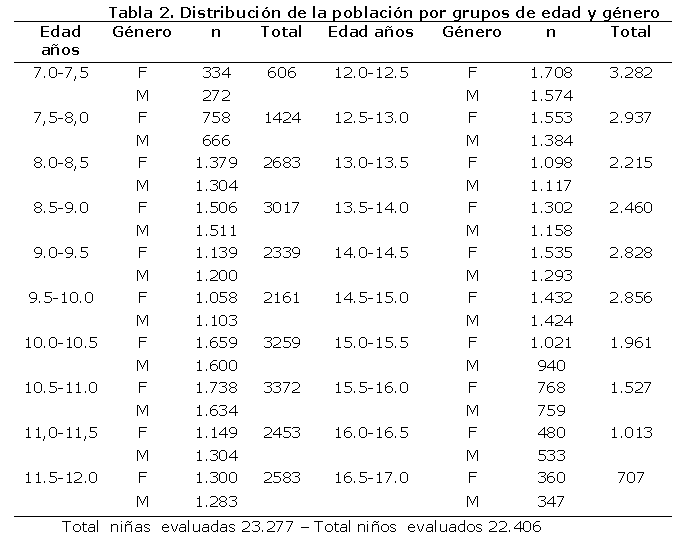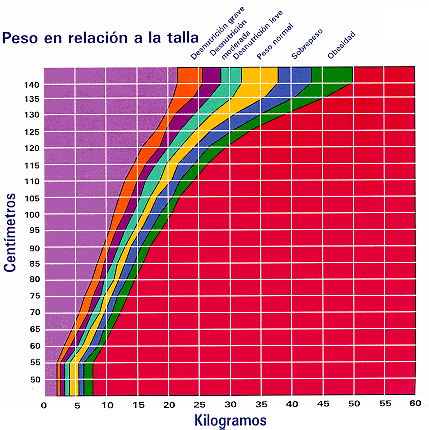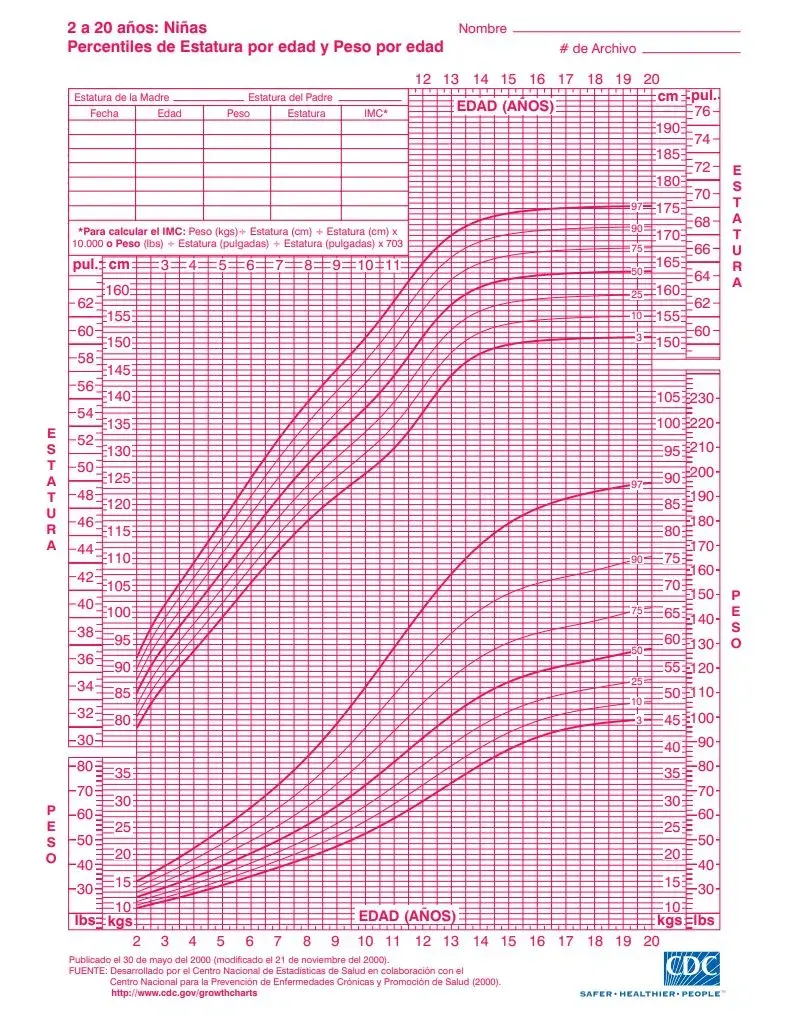
Figure: Tablas de estatura y peso para niños y niñas de 2 a 10 años de edad - Manual MSD versión para público general

Velocidad media de ganancia de peso y estatura en niños de 2 A 10 años pertenecientes a familias del área rural del municipio de Marinilla-Antioquia, Colombia

Doctor Web en Twitter: "¿Sabes cuál debe ser el peso y altura promedio de un bebé de acuerdo a sus meses de nacimiento? Ve la siguiente tabla http://t.co/XaMciVjH" / Twitter

ESTUDIO TRANSVERSAL DE CRECIMIENTO DE LOS ESCOLARES BOGOTANOS: VALORES DE ESTATURA, PESO ÍNDICE DE MASA CORPORAL DE LOS SIETE A LOS DIECIOCHO AÑOS


















